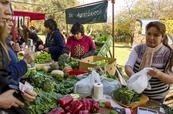A comparative analysis of public policies in favour of agro-ecology in Latin America showed that despite the increasing popularity of this approach, it remains very marginal in terms of production, marketing and public support. For the authors, agro-ecology calls for flexible measures drafted on a territory scale, and the constitution of large-scale coalitions in favour of healthy, environmentally friendly food supplies.
How is the agro-ecological transition working in Latin and Central America? A comparative analysis of public policies and support instruments in eight countries* has gone some way towards answering the question. The work was conducted within a platform in partnership for research and training, "Public Policy and Rural Development in Latin America" (dP PP-AL). It was recently published with the support of the FAO, and discussed at an international seminar in Porto Alegre, Brazil, in early October. The discussions resulted in the suggestion of an in-depth regional study on the topic, particularly the role of innovation systems in implementing agro-ecology.
In recent years, agro-ecology has gained popularity in Latin America, as an alternative to conventional production systems and agribusiness. After land reform policies and support of family farming, a second generation of policies has played an important role in promoting agro-ecology in Latina America and the Caribbean (see box). This means schemes, generally participatory, in support of food and nutritional security, territorial development and rural wellbeing. It also includes measures promoting short circuits, local agro-ecological markets, public purchasing of food produced by family farms, with a bonus paid for ecological production, and urban agriculture programmes.
The study revealed two preconditions for the success of agro-ecology:
- the provision of technical advice specific to agro-ecology, and support of local seed and agro-ecological knowledge management networks through research, extension and training,
- measures drafted on a territory scale, whereas they are generally restricted to plot or production unit level. The territorial dimension encompasses natural resource, landscape and knowledge management, organization of local markets, etc.
The conclusions of the analysis suggest increasing recognition of agro-ecology as a way of coping with the climate, geopolitical and financial crises affecting conventional agricultural systems. However, agro-ecology is still very marginal in terms of production and marketing, particularly since it is emerging within the framework of public policies that are generally contrary, if not hostile, to its principles. Efforts have been made to disseminate information and train stakeholders by social movements, producers' organizations, technical colleges, universities, NGOs and public agricultural extension services. However, there is not yet the strong link with consumers that is required to build broader coalitions in favour of healthy, environmentally friendly food supplies. Building such movements also depends on alliances between the agro-ecology, organic farming, biodynamics and permaculture movements.
*Argentina, Brazil, Chile, Costa Rica, Cuba, El Salvador, Mexico and Nicaragua.
Specific public policies are now being drafted
In Brazil, a national programme in favour of agro-ecology and organic farming was introduced in 2012, affecting almost 60 000 farms. In Nicaragua, a law promoting agro-ecology and organic production was adopted in 2011. While its application is proving somewhat problematical, the law is an important step towards recognizing these alternative forms of production. In El Salvador, the national family farming committee submitted an agro-ecology support policy to the government in August 2017.
The adoption of these agro-ecology support policies and schemes was prompted by three types of factors:
- the pressure exerted by social movements (NGOs, producers' and consumers' organizations),
- financial, economic and climate crises restricting farmers' access to inputs,
- and lastly, government initiatives such as certification tools, for organic farming in particular, and payments for environmental services or agro-environmental measures
